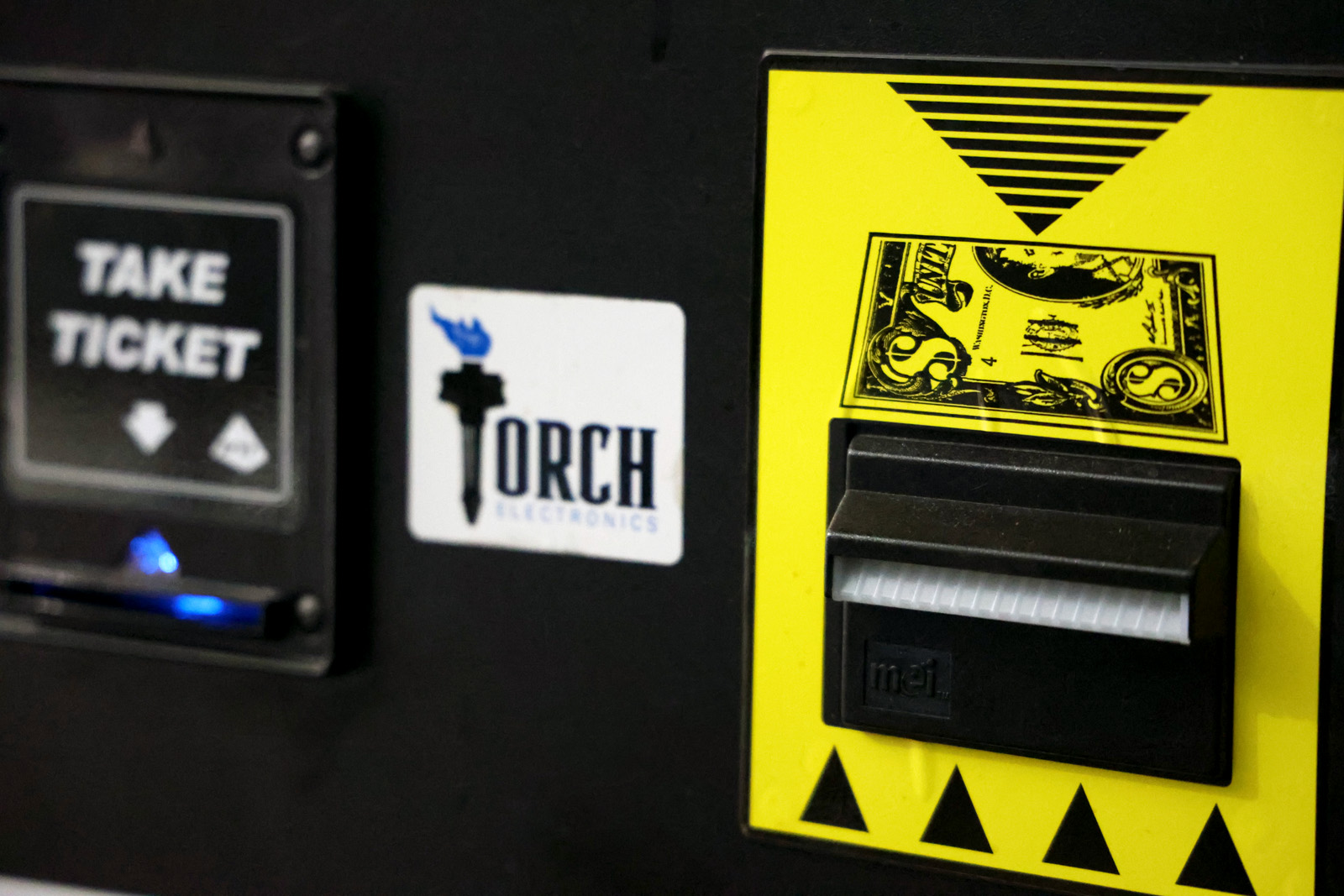As the City of Springfield enters a legal battle over a new ordinance that effectively bans video lottery terminals, another bill aiming to legalize the gaming devices has been filed in the Missouri legislature.
House Bill 2835, sponsored by gubernatorial candidate and Missouri House Minority Floor Leader Crystal Quade, D-Springfield, would legalize, regulate and tax video lottery terminals (VLTs) — while allowing cities and counties opportunity to ban the machines.
Quade said she has been contacted “a lot” over the years regarding VLTs — which have proliferated in gas stations, bars, private clubs and standalone game rooms around the state — and began working on the bill prior to the Springfield City Council’s adoption of an ordinance banning the machines.
“It really has been something that I've been looking at for a while in terms of how to help the community with this,” Quade said. “Do we just completely ban them? How does that work? And looking at the political climate here — that's really where we came up with this solution.”
Quade’s bill would also legalize sports wagering for all of Missouri, which has become intertwined in efforts to reign in VLTs. Quade’s bill is one of eight that have been filed — by Democrats and Republicans — during the state legislature’s 2024 session that would legalize sports betting, video lottery terminals or both.
“What I tried to do with this bill is to come up with a different approach than the other bills that have been filed over the years and merge these together and redefine or create a new definition for these games,” Quade said.
What makes House Bill 2835 different from similar legislation?

Video lottery terminals are not a new issue for the Missouri General Assembly, which has deliberated numerous bills relating to the gaming machines and sports wagering in recent years.
Many of those bills that have been sponsored by state Sen. Denny Hoskins, R-Warrensburg, who, like Quade, has combined the topics into one bill. Quade said her bill is “almost the same” as Hoskins’.
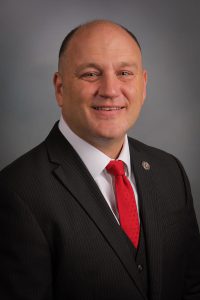
Unlike Hoskins’ legislation, which explicitly legalizes video lottery terminals, Quade sought for her bill to “encompass all the different types of machines,” and instead refers to the devices as “mechanical amusement machines.”
“I chose to do that because there are different types of these games, and the definition piece is really where the courts are coming into play,” Quade said.
In addition to sharing similarities with other gaming and gambling bills, Quade said her bill is also the culmination of research on various court cases and legislation filed in other states.
“We didn't just come up with this,” Quade said. “We did a lot of research to what the other folks have been doing who didn't have to go through the court process, or where the cases ended up.”
Quade’s bill also differs from Hoskins' bill by imposing higher fees on VLT operators. It also offers a lower tax on VLT revenues than Hoskins' legislation, which proposes a 36% rate.
Quade hopeful her bill is a ‘conversation-starter‘
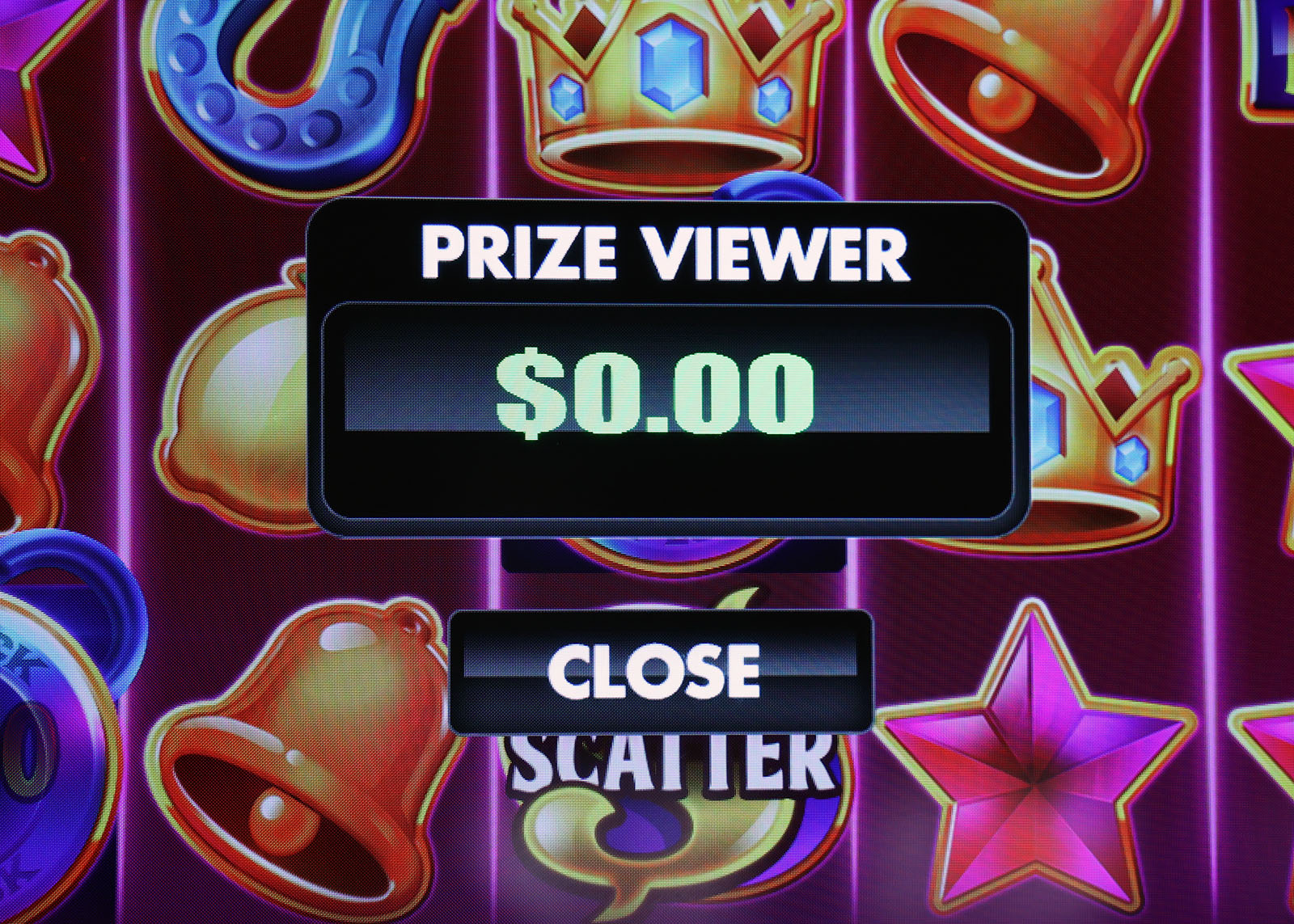
Efforts to exclusively legalize sports betting — spearheaded by state Rep. Dan Houx, R-Warrensburg, in the lower chamber — have been successful in the House only to be blocked in the Senate, namely by Hoskins.
“A stand alone regulation bill is not going to pass, a ban is not going to pass, but I think that a bill like this could actually get some traction,” Quade said, referring to her legislation.
Houx’s latest attempt to solely legalize sports betting — House Bill 2331 — has cleared two committees and is awaiting deliberation on the House floor. Filed on Feb. 27, Quade’s bill has yet to be referred to a committee. Though she has little confidence that her bill, or any legislation addressing VLTs or sports betting will pass in the current legislative session, she hopes it's a “conversation-starter.”
“Really, my goal here is to show that we can come to a compromise on these issues, pass something to get these illegal machines out of our neighborhoods and increase funding for desperately needed services in the process,” Quade said.
An initiative petition campaign — backed by a coalition of six professional sports teams — is aiming to put sports betting before Missouri voters. In order to make the November ballot, the petition must be signed by 8% of voters from six of the state’s eight congressional districts and submitted to the secretary of state’s office by May 5.
What Quade’s bill would do
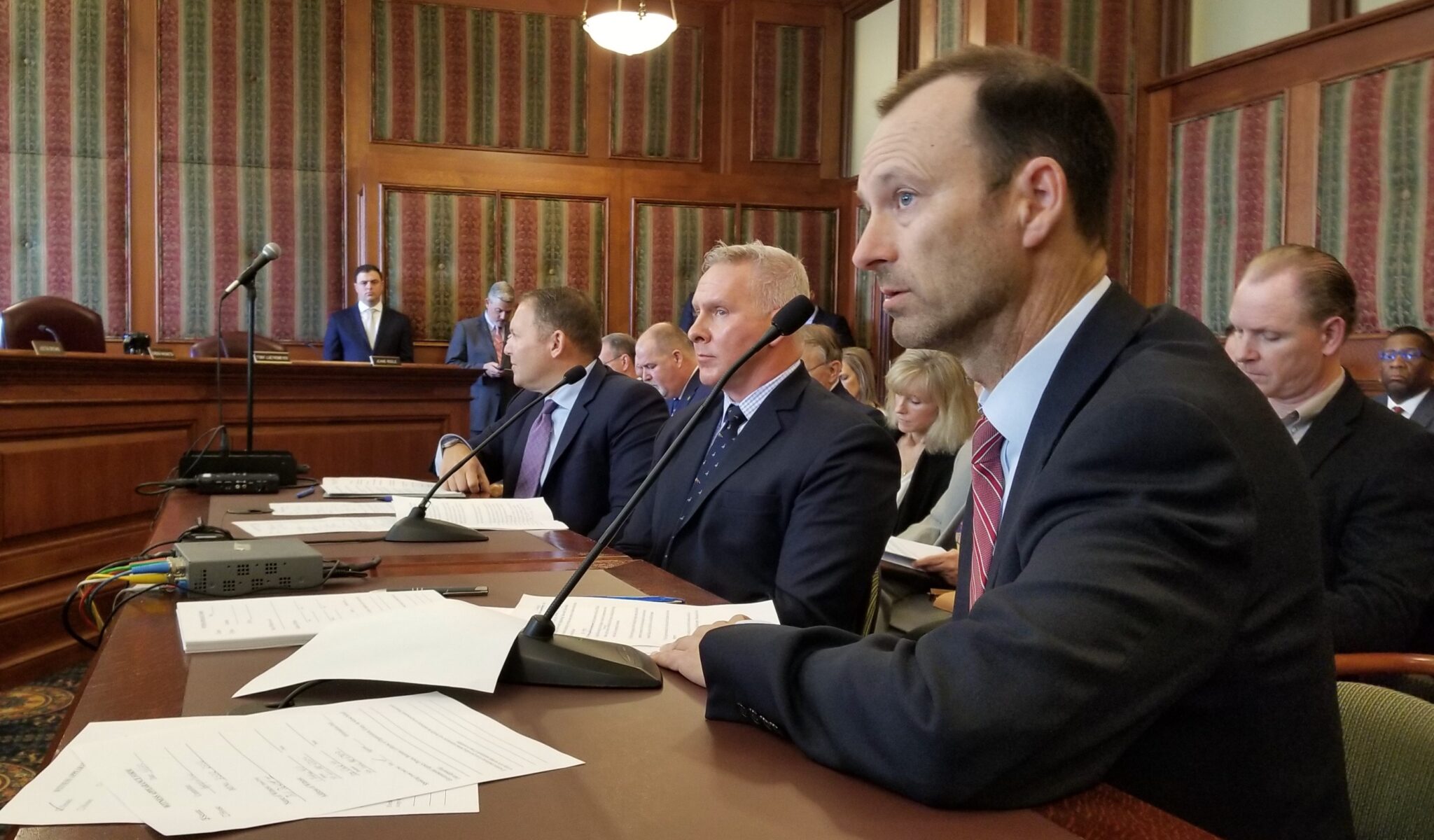
Under Quade’s legislation, the Missouri Gaming Commission — which regulates Missouri’s casinos, charitable bingo and fantasy sports — would be tasked with oversight of VLTs and sports betting.
The bill establishes a host of regulations for both types of gambling, including a licensing system for VLT manufacturers, distributors, operators, handlers and retailers; restrictions on who can wager, and where and how bets can be placed; and a fee and tax structure capable of producing up to $500 million a year in revenue.
Fraternal and veterans organizations and truck stops could host up to eight devices, while businesses licensed to sell liquor by the drink can’t have more than five VLTs. Additionally, the machines wouldn’t be allowed within one mile of a casino or an elementary or high school.
Net revenues from the machines would be taxed at 33%, with 4% of tax revenues paid into the state lottery fund transferred to the city or county where VLTs are licensed to operate and the remainder allocated for elementary and secondary education. Sports betting would be taxed at 10%, with revenues similarly earmarked for education.
Of the fines and fees collected through the licensing process of VLTs, 1% would be allocated for the Veterans’ Commission Capital Improvement Trust Fund, with the remainder divided between public safety and administrative fees associated with enforcement of the legislation.
Revenues from fines and fees associated with sports betting would be deposited into the Gaming Commission Fund, and distributed to the Veterans’ Commission Capital Improvement Trust Fund, the Missouri National Guard Trust Fund and the Missouri financial assistance trust fund.
Multiple bills would allow cities, counties to ban VLTs
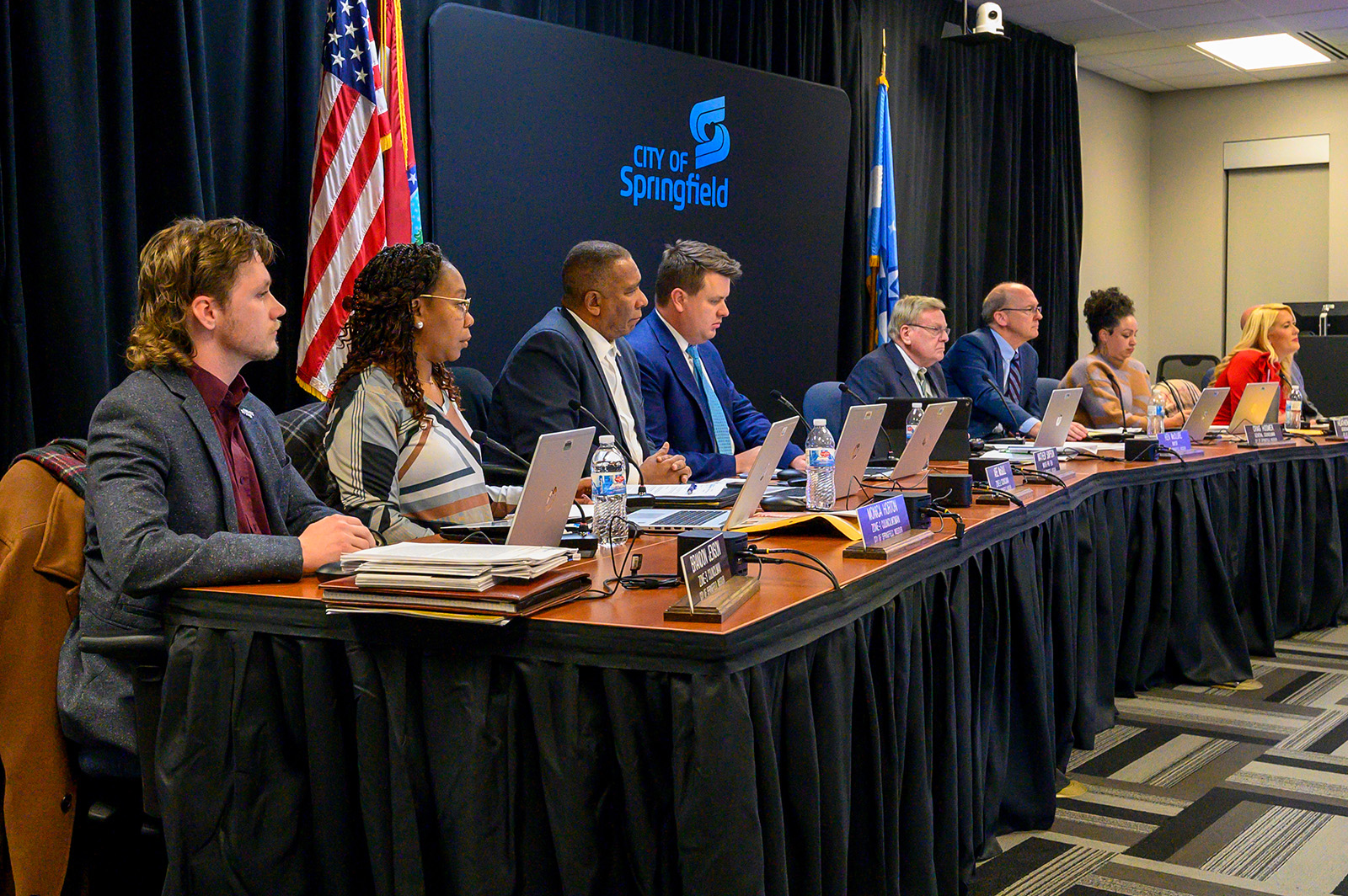
Though it restricts where VLTs can operate, House Bill 2835 conflicts with a legislative priority of the Springfield City Council, which has asked the state legislature to “lawfully define video lottery terminals (VLTs) as illegal gambling devices under State law.”
However, the bill would allow cities and county commissions — for the unincorporated areas of a county — to prohibit the operation of VLTs.
“When we look at these devices, a lot of folks have a lot of feelings and opinions about them, but ultimately, I believe it's up to the local municipalities if they don't want them there to be able to do that,” Quade said.
Shortly after the Springfield City Council adopted the VLT ban, the city was sued by VLT vendor Torch Electronics. The company alleges that the Springfield ordinance is “not applicable to Torch coin-operated amusement machines as Torch coin-operated amusement machines are not entertainment devices that offer a monetary prize.”
Under Quade’s bill, and others like it, Springfield would be protected from that kind of litigation.
The city’s new ordinance continues to be enforced, according to a spokesperson for the Springfield Police Department, as the lawsuit progresses in Greene County Circuit Court. Judge Nathan Taylor was recently assigned the case.
A spokesperson for Torch Electronics said the company has no comment for this story. The Daily Citizen reached out to the city for comment, but did not hear back by deadline.
